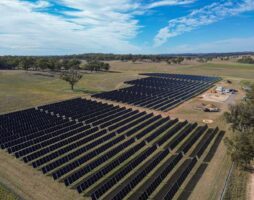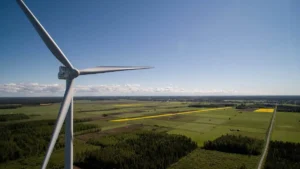
Shuttershock
Until recently, long term perspectives in investment, business and political circles have been deeply overshadowed by chronic short termism. Especially when it comes to climate and carbon policy risks. But that’s changing.
Earlier this month David Gonski told an Australian Institute of Company Directors conference that board directors should take a more long term perspective on their investments, and if shareholders don’t like it, they should just go jump. Or words to that effect. It’s an important shift.
It is not very well known that directors actually have a responsibility to act in the interests of the company as a whole, meaning future as well as current shareholders. It is even clearer that superannuation fund trustees have a personal duty to all of us to manage retirement nest eggs for the long term. But both directors and trustees have largely been slow to move on the risks of climate and carbon policy volatility to their companies and investment portfolios.
However, those who ignore the need to build business models that can prosper in economies no longer emitting heat trapping carbon pollution are finding themselves increasingly between a rock and a hard place.
The ‘rock’ is the divestment campaign that simply says “No” to investment in fossil fuels such as coal, gas or oil. Drawing on historical roots in slavery, apartheid and tobacco campaigns, fossil fuel divestment campaigns have spread from churches and universities to mainstream sovereign wealth and massive insurance funds.
One of the biggest shock waves in the investment community occurred when a $860 million Rockefeller family fund, heirs to fossil fuel fortunes, announced it would divest from fossil fuels. This fund joined others that, at the end of last year, had seen global pledges to divest from coal, oil and gas investments blossom from $50 billion to over $3.4 trillion in a little over 12 months.
This campaign has not only shifted capital but, perhaps more importantly, attitudes. Fossil fuel companies are being increasingly stigmatised. This is challenging their “social licence” to operate; investor confidence and attractiveness to prospective employees. The Mineral Council of Australia’s reactive and clumsy “coal is amazing” campaign is ample testament of its impact.
The ‘hard place’ is the growing wave of shareholder and investor activism calling for more transparency and forceful stewardship of climate and related carbon risks. Investors are not only asking more questions about exposure to physical climate risks, but also exposure to sudden policy swings needed when the urgency of action is finally realised.
Recently the massive Californian pension fund, CalPERS, said it wanted climate and clean energy expertise represented on all Boards of companies in which it invested. More and more shareholder resolutions for disclosure and new directions are being tabled. They are gaining significant support, even against directors’ recommendations. Climate litigation against companies is increasing; Exxon are under investigation.
In response to this, but also because of some welcome long term thinking, energy companies and banks are beginning to stress test their business models to see if they will cope in economies with zero emissions and below. BHP has already done so. This year, Westpac, AGL and Origin are also doing so. This is a new dimension in corporate transparency in which short, medium and long term carbon policy, commodity price and clean technology assumptions will be laid bare.
However, all of these efforts will come to naught if we don’t increase the investment in climate solutions and modernise, as well as decarbonise, our energy and transport systems. There is reason for hope here. Cleaner and fossil free portfolios are being constructed. Climate and Green Bonds are a booming asset class in capital markets. Policy shifts in the US, China and elsewhere are capping and/or phasing out coal mines and traditional coal burning power stations. Pressure is building here for similar transition plans.
But we need greater urgency. We are already seeing insurance, property, agriculture and tourism assets, like the Great Barrier Reef, being hit by climate related extreme weather impacts. We’ve also seen the destruction of billions of dollars of shareholder value with ‘writedowns’ in coal and gas operations hammering share prices and superannuation portfolios.
If we are to avoid increasingly destructive global warming then the road ahead for traditional fossil fuel investments will need to get a lot rockier and a lot harder. It is in all of our interests, short and long term, to act now to smooth an orderly but urgent path to companies, investments and economies with net zero emissions and below.
John Connor is CEO of The Climate Institute, which is hosting Australia’s first Divest-Invest Conference at Darling Harbour, Sydney on Tuesday April 5.







